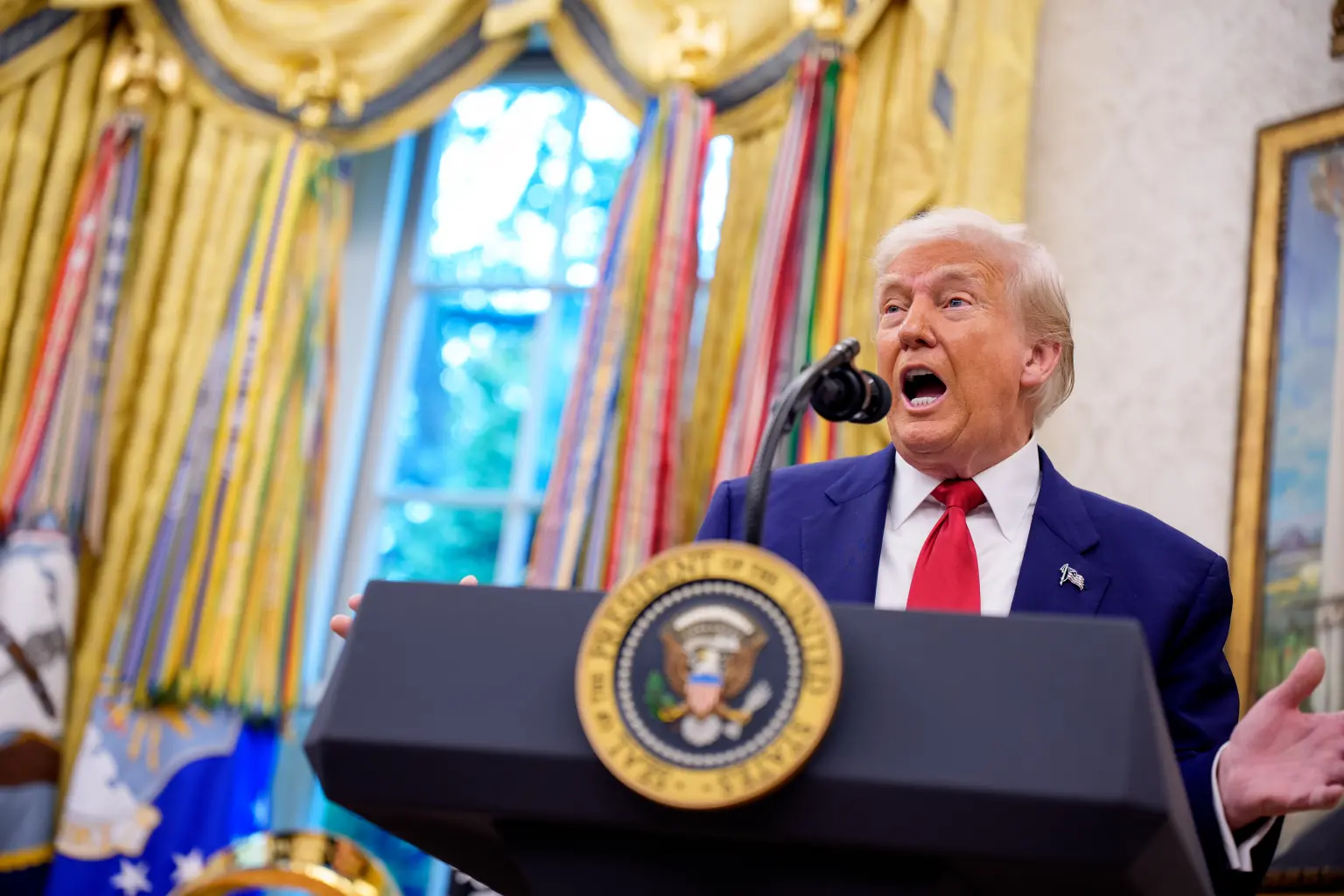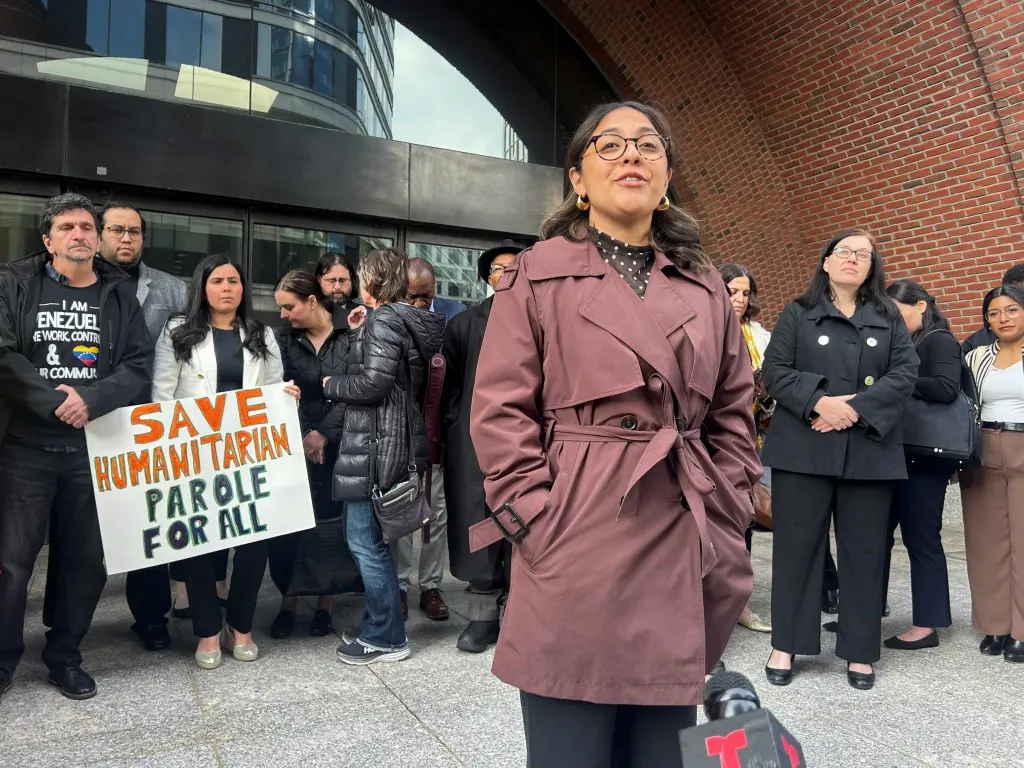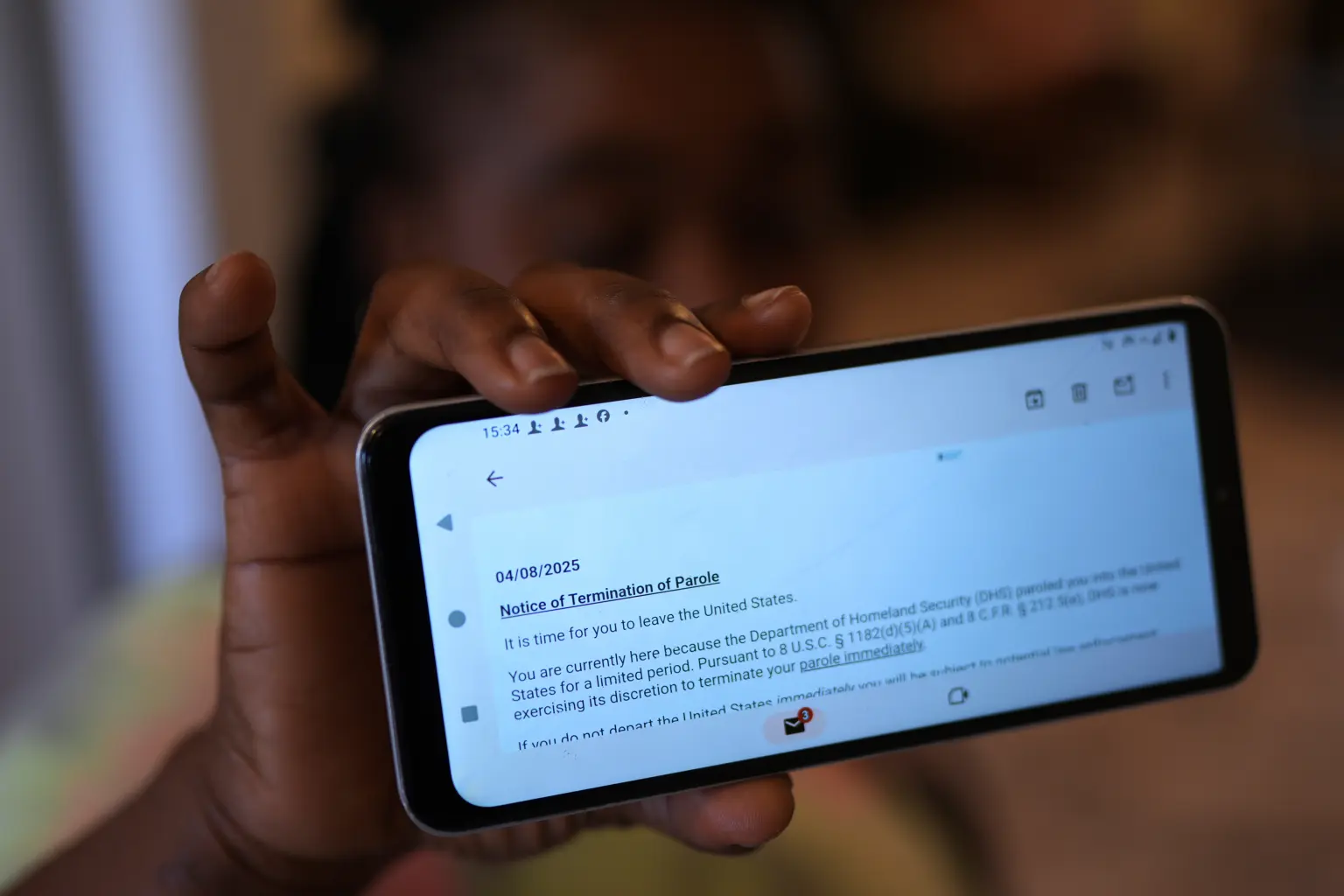By Associated Press. Media: Nypost
A federal judge ruled Wednesday that the Trump administration wrongly ended humanitarian parole for hundreds of thousands of people allowed to live in the United States temporarily.
The decision is another legal setback for President Donald Trump’s plans for mass deportation, but it may prove temporary and its immediate impact was unclear.

3
President Donald Trump speaks during a swearing in ceremony for U.S. Attorney for Washington, D.C. Jeanine Pirro in the Oval Office of the White House on May 28, 2025 in Washington, DC.
Getty Images
U.S. District Judge Indira Talwani in Boston sided with people who were already admitted to the United States but were unable to renew their short-term permits. They cover parole policies that benefited Afghans, Ukrainians, Cubans, Haitians, Nicaraguans, Venezuelans and children from Central American countries trying to join their parents in the U.S., among others.
Talwani, who was appointed by President Barack Obama, said two orders by Department of Homeland Security officials to suspend renewals pending further review were unlikely to survive a legal challenge. One of the orders “gives no reasoned explanation” for the actions, she wrote.
“The ‘pause’ has now been in place for three months; the pause is, in effect, an indefinite suspension,” she wrote.

REUTERS
The Department of Homeland Security did not immediately respond to a request for comment.
A group of American citizens and immigrants earlier this year sued the Trump administration for ending the long-standing legal tool presidents have used to allow people from countries where there’s war or political instability to enter and temporarily live in the U.S. The humanitarian parole programs allowed in 875,000 migrants who have legal U.S. residents as sponsors.

AP
Trump has been ending legal pathways for immigrants to come to the U.S. and implementing campaign promises to deport millions of people who are in the U.S. illegally.
The plaintiffs include eight immigrants who entered the U.S. legally before the Trump administration ended what it called the “broad abuse” of humanitarian parole. They can legally stay in the U.S. until their parole expires, but the administration stopped processing their applications for asylum, visas and other requests that might allow them to remain longer.
None are identified by their real names because they fear deportation. Among them are Maksym and Maria Doe, a Ukrainian couple; Alejandro Doe, who fled Nicaragua following the abduction and torture of his father; and Omar Doe, who worked for more than 18 years with the U.S. military in his home country of Afghanistan.

























































































Discussion about this post